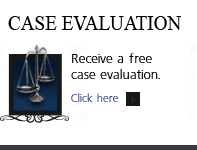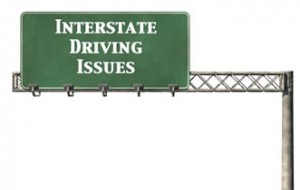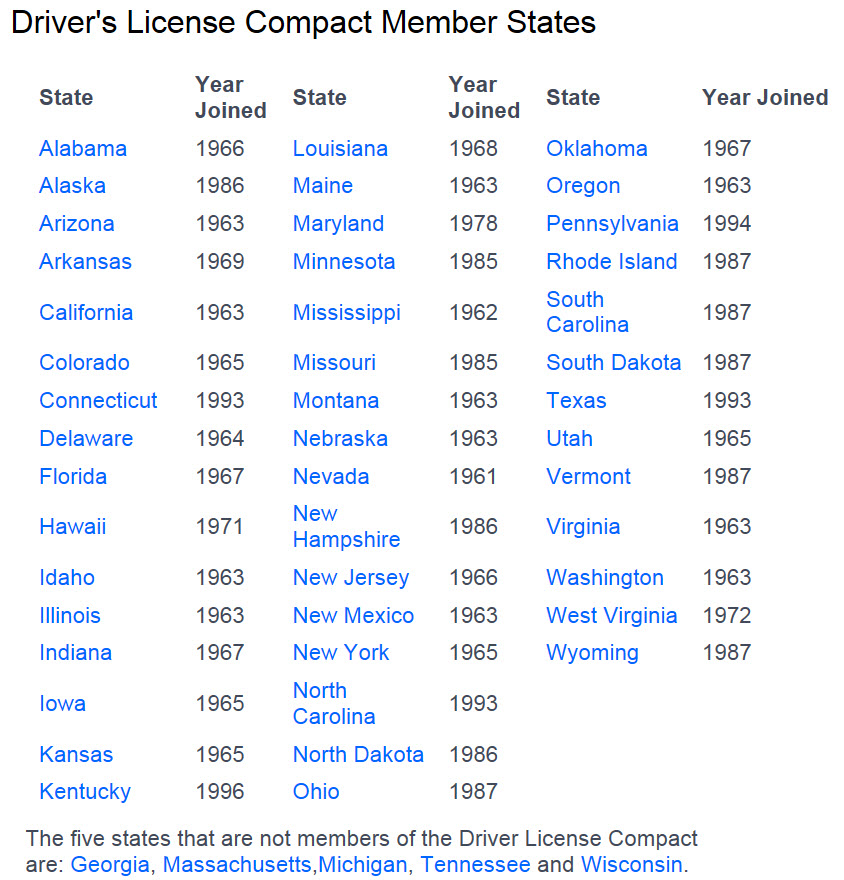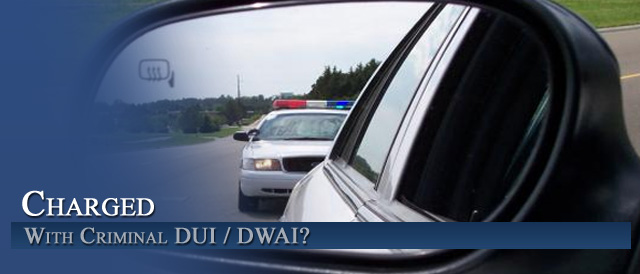
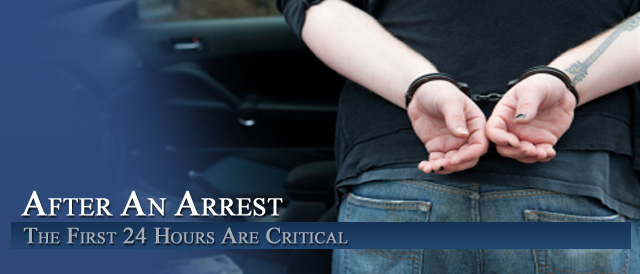

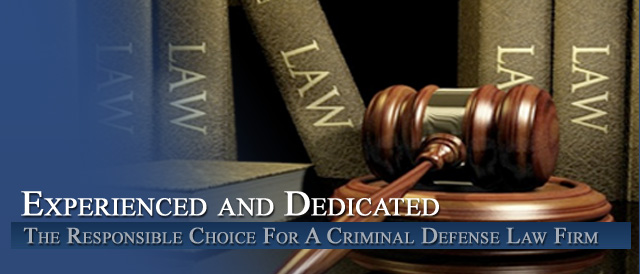
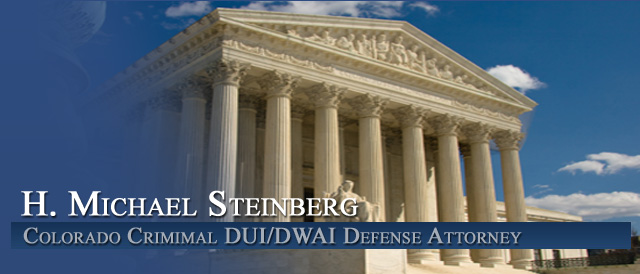
Colorado Rules For Obtaining A Driver’s License When Out of State Suspension – The Interstate Driver’s License Compact Rules
by Colorado Traffic Criminal Defense Lawyer – Attorney On The Interstate Driver’s License Compact – H. Michael Steinberg
The Interstate Driver License Compact (IDLC) or DLC is an interstate agreement between most of the United States that was developed in order to exchange information on driver’s license suspensions and traffic violations.
The unifying nature of the system is intended to prevent forum shopping to avoid driver’s license suspensions by moving to another state. The target state – so it is intended – would be required to honor the suspension as if it had been committed at home, applying home state laws to the out-of-state offense.
The DMV action taken would include, but not be limited to, points assessed on a minor offense such as speeding and suspension of license or a major violation such as DWI/DUI. It is not supposed to include non-moving violations like parking tickets, tinted windows, loud exhaust, etc.
Member states of the DLC are: ( this list may have changed since the printing of this article)
The Target State Must Be A Member of The Interstate Compact
Under the Driver License Compact, in order for a driver’s state to penalize him/her for an out-of-state offense, the driver’s state must have the equivalent statute. If the driver’s state does not have the statute, no action can be taken.
Colorado vs Indiana
Indiana is one of the states that does not have a careless driving offense whereas Colorado does. If an Indiana licensed driver gets convicted of careless driving in Colorado, the Indiana Bureau of Motor Vehicles takes no action.
The List of States that are not members is:
Georgia, Wisconsin, Massachusetts, Michigan, and Tennessee are not members. Nevada repealed the authorizing legislation in 2007, although it still generally conforms to the agreement through regulations.
Some Minor Tweaks Under The DLC Are….
As a defense lawyer in Colorado – it is important to note that some states – such as Colorado – do not assess points for minor offenses and apply the DLC for only major violations. Others are Maryland, Nevada, New York and Pennsylvania.
States that are members are free to take action on violations reported from a non-member states as well. Pennsylvania only transfers points from another state within the agreement if it meets certain conditions.
New Jersey assigns 2 points for all out of state minor violations regardless if the point values are higher if committed in the home state.
The action that will be taken depends on the particular state in question. Some states just duplicate the actions of the state where the conviction occurs. Where California suspends a driver’s privileges locally for four (4) months, the original licensing state may suspend for the same length of time. Other states may impose a greater suspension, or require the payment of fines and still other states may be more lenient.
Then There Are The Special Agreements
New York does assess points for minor violations received in Ontario and Quebec. Michigan and Ontario exchange information and take adverse action. Maine and Quebec exchange information and take adverse action. Florida and Quebec exchange information and take adverse action.
The Source of the Compact’s Information Is The National Driver Register (NDR)
The National Driver Register (NDR) is a computerized database of information about drivers who have had their licenses revoked or suspended, or who have been convicted of serious traffic violations such as driving while impaired by alcohol or drugs.
State motor vehicle agencies provide NDR with the names of individuals who have lost their privilege or who have been convicted of a serious traffic violation. When a person applies for a driver’s license the state checks to see if the name is on the NDR file. If a person has been reported to the NDR as a problem driver, the license may be denied.
The NDR Master File (database) is populated with pointer information supplied by States as a result of convictions and license revocations/withdrawals pertaining to highway safety violations.
Here is what the NDR Keeps On You and Me:
The National Driver Register Status:
– No Match: The individual does not have record a on the NDR.
– Licensed (LIC): Licensed means the individual holds a license in that State and the privilege to drive is valid.
– Eligible (ELG): The individual privilege to drive or apply for a license in a State(s) is valid.
– Not: The individual privilege to drive in a State(s) is invalid.
– NEN: The individual privilege to drive in a State(s) is invalid due to a non-moving violation.
The stated mission of the NDR is to
….”improve traffic and transportation safety by providing a nationwide database of problem drivers that assists State driver licensing agencies in identifying these individuals and assists employers in making hiring and certification decisions…..
State driver licensing officials query the NDR to determine if an individual’s license or privilege to drive a motor vehicle has been withdrawn by any State.
When the NDR receives a query, it matches Personal Identification information submitted by the requester against information in the system for a probable match (pointer record) from one or more states.
Matching algorithm uses name, date of birth, and sex. Social Security Numbers are used only as another form of personal identification since not every State submits Social Security Numbers as a form of Identification.
If an individual’s driving privilege is withdrawn in the State in which he/she is licensed or in another State, he/she will not be able to obtain a license or learner’s permit until the individual has satisfied the suspension within the State of Record.
Then There is the National Driver Register Problem Driver Pointer System (PDPS)
The NDR Master File (database) is populated with pointer information supplied by States as a result of convictions and license revocations/withdrawals pertaining to highway safety violations.
What do I need to do if my driver license has been suspended in another State?
You must contact the State(s) in question to learn how to address the suspension and what is required to restore your driving privilege.
There is no fee associated with NDR searches. These searches are free of charge and available to anyone.
Records stay on the file according to State record keeping requirements. To determine the length of time your record will stay on the file, you must contact the State of Record.
What does it mean if my name is on the NDR?
If your name is on the NDR database it may mean that your driver license has been sanctioned (suspended, cancelled, revoked or denied) because of a serious traffic violation.
The Regulations Applied to Colorado Driver’s Impacted By This Compact
The Colorado Division of Motor Vehicles has special rules it applies to the Compact -( I dug them out:)
Colorado Interstate Driver License Compact Rules
Colorado Code of Regulations – CCR 204-16
These rules and regulations are promulgated to implement Article V of the Driver License Compact, 24-60-1101 C.R.S. These rules and regulations shall govern applications for Colorado driver’s licenses by persons whose driving privilege is under restraint in another party state.
CCR 204-16 Interstate Driver License Compact Rules
The Application
1. Upon receiving an application for a Colorado driver’s license, the Division of Motor Vehicles (DMV) shall ascertain whether the applicant has ever held or is the holder of a license to drive issued by another party state.
2. If the applicant has held such license but the same has been suspended or revoked by the issuing state, DMV shall not issue a Colorado driver’s license to the applicant except as provided herein.
3. Whenever DMV receives a license application from a person under restraint in a party state, DMV shall issue a written notice of denial to such applicant. The notice shall identify the state(s) where the applicant’s privilege is under restraint. The notice shall contain information concerning the applicant’ s right to a hearing in accordance with 24-4-104 C.R.S. and information on obtaining a Letter of Clearance from the restraining state.
The Licensing of Drivers Currently under Restraint in Another State
1. Any applicant who is denied a Colorado driver’s license because of an existing restraint in another party state may request a hearing to determine eligibility for licensing under these rules.
2. Upon receipt of such hearing request, the Hearing Section shall notify DMV of the pending hearing. DMV shall thereupon acquire the applicant’ s driving record from the restraining party state and analyze that record, applying Colorado law.
For purposes of this analysis, all offenses appearing on the out-of-state record shall be viewed as if they had occurred in Colorado. Analysis of the out-of-state record as described shall constitute the investigation required in Article V, paragraph 2, of the Driver License Compact.
3. At hearing, the applicant must show that:
a. At least one year has passed since the out-of-state license was suspended or revoked;
b. He or she has not driven since the imposition of the suspension or revocation; and
c. He or she is now a Colorado resident.
4. Residence may be established by such evidence as proof of employment, voter registration, utility bills or other documents which reflect that the applicant resides in Colorado.
5. Any evidence of a traffic conviction for an offense occurring after the suspension or revocation effective date shall rebut paragraph 2 above, and the applicant shall be required to wait one year from the violation date before applying for a Colorado license under these rules; or until one year after the date of Colorado reinstatement eligibility, whichever is longer.
6. The DMV shall have the burden at the hearing to show that the applicant is not eligible for licensing based on the analysis of the out-of-state driving record.
a. DMV shall present its analysis and calculate the reinstatement eligibility date as determined by the application of Colorado law to the record.
b. In making this calculation, .DMV shall credit time spent under the out-of-state restraint to the total time of restraint required under Colorado law.
c. If the calculated reinstatement eligibility date has passed, the applicant shall be eligible to apply for a Colorado driver’s license upon the completion of any required reinstatement conditions.
d. If the calculated reinstatement eligibility date is established to be a date in the future, that future date shall be the date upon which the applicant becomes eligible to apply for the Colorado license.
e. This date shall be extended for one year in the event of any conviction of a traffic offense in the interim.
7. In no event shall any limited driving privilege, such as a probationary or temporary license, be issued to any applicant subject to these rules.
8. In no event shall a Colorado driver’s license be issued to any applicant less than one year after the imposition of a restraint by a party state.
Getting Your Colorado Driver’s License – The Long Process
If you are subject to a long term license revocation from another state and you have recently moved to Colorado or plan to move to Colorado, you may still qualify for a Colorado drivers license under Colorado’s Interstate Compact Law.
The DLC provides that the State of Colorado may issue licenses to Colorado residents who are eligible under Colorado Law even though they may be ineligible to drive under another state’s laws.
The Key Provision Excerpted From the DLC Act: (… and here is a LINK to the Entire Manual)
2.1.6. Who Shall Not Be Licensed
The licensing authority in the jurisdiction where the application is made shall not issue a license to drive to the applicant if:
2.1.6.1. The applicant’s driving privilege is suspended or revoked in whole or in part as a result of a violation of one of the following. Such violations are not limited to those listed.
Manslaughter or negligent homicide resulting from the operation of a motor vehicle.
Driving under the influence of Alcohol/Drugs (DUI).
Felony in which a motor vehicle is used.
Leaving the scene of an accident or failure to stop and render aid at a personal injury accident or fatal accident.
2.1.6.2. The applicant’s license has been suspended, by reason, in whole or in part, of a violation and such suspension period has not terminated.
2.1.6.3. The applicant’s license has been revoked, by reason, in whole or in part, of a violation and such revocation period has not terminated, except that after the expiration of one year from the date the license was revoked, such person may make application for a new license if permitted by the laws of the state in which the application is being made
2.1.6.4. The licensing authority determines that, under the laws and/or regulations of the issuing jurisdiction, the applicant has habitually violated vehicle and traffic laws. Such applicant may reapply for a license in a time frame consistent with the laws and regulations of the issuing state, provided that the applicant is eligible to be reinstated in the prior licensing jurisdiction or the jurisdiction in which the driving privilege has been suspended or revoked.
2.1.6.5. The licensing authority may refuse to issue a license to any applicant if, after investigation, such as a review of the driver history record of another state, the licensing authority determines that it will not be safe to grant to the applicant the privilege to drive on its public streets and highways. This refusal may result from the applicant’s driver history record containing violations, restrictions, medical indicators, and/or incidents which would have resulted in a current suspension, revocation, or restriction had the violations, conditions, and/or incidents occurred in the jurisdiction of the current licensing authority.
2.1.6.6. The exception specified in 2.1.5.3. has a suspension, revocation, or cancellation of the basic driving privilege appearing in his driver history record. The applicant may be licensed if his commercial privilege has been withdrawn but the underlying privilege remains valid.
2.1.6.7. This section shall be liberally construed by an issuing authority
How Long and How Tough?
The Colorado application procedure can take many weeks to complete and Colorado residency is required to even qualify to attempt to obtain your license.
Most critically – as noted in rule 2.1.6.3. you cannot have driven for at least one year.
Colorado’s “New” Early Reinstatement – The Interlock Driving Program
42-2-132.5 Colorado Interlock Program Law
In January of 2001, the Colorado DMV instituted what had been a pilot project known as the interlock driving program. This interlock program allows drivers on long term revocations, which are for the most part related to alcohol related driving offenses, to obtain early reinstatement of their driving privileges.
Under this program – as noted above – there is a threshold requirement to attempt to obtain a drivers license under the interlock program of “no driving” for one year and only persons on long term license revocation are therefore eligible under the new program.
If you meet the one year no driving requirement, final eligibility for an interlock license will be calculated on the basis of your driving history.
The complex and lengthy Colorado law that explains this program is found HERE (LINK) it is Colorado Revised Statute sec. 42-2-132.5
Please call our law firm if you have questions about ..
The Interstate Driver’s License Compact
H. Michael Steinberg has been a Colorado criminal law specialist attorney for 40 years (as of 2012). For the First 13 years of his career, he was an Arapahoe – Douglas County District Attorney Senior prosecutor. In 1999 he formed his own law firm for the defense of Colorado criminal cases.
In addition to handling tens of thousands of cases in the trial courts of Colorado, he has written hundreds of articles regarding the practice of Colorado criminal law and frequently provides legal analysis on radio and television, appearing on the Fox News Channel, CNN and Various National and Local Newspapers and Radio Stations. Please call him at your convenience at 720-220-2277
If you have questions about The Interstate Driver’s License Compact in the Denver metropolitan area and throughout Colorado, attorney H. Michael Steinberg will be pleased to answer those questions and to provides quality legal representation to those charged in Colorado adult and juvenile criminal matters.
In the Denver metropolitan area and throughout Colorado, attorney H. Michael Steinberg provides quality legal representation to those charged in Colorado adult and juvenile criminal matters.as reagrds The Interstate Driver’s License Compact


